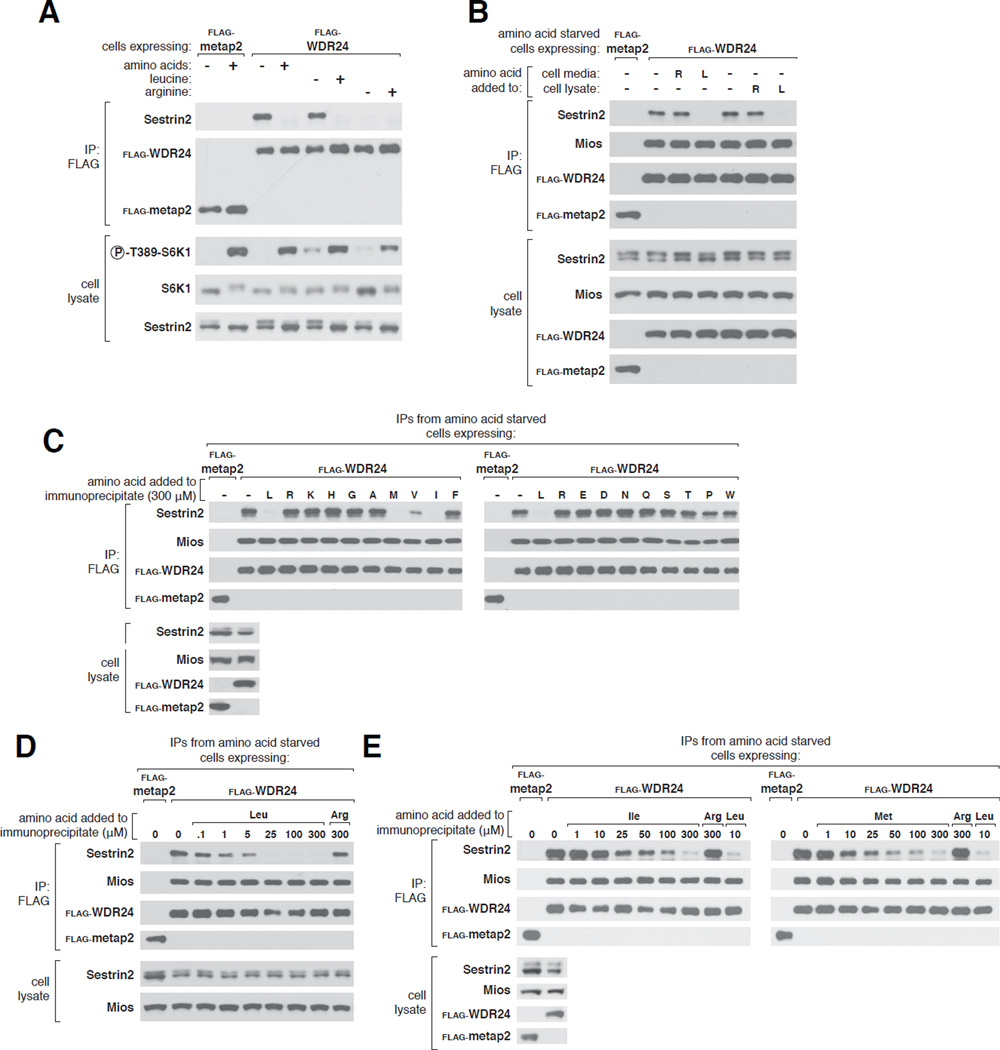Figure 1. Leucine, but not arginine, disrupts the Sestrin2-GATOR2 interaction in cells and in vitro.
A) Binding of Sestrin2 to GATOR2 in HEK-293T cells stably expressing FLAG-WDR24 (a component of GATOR2). Cells were deprived of leucine, arginine, or all amino acids for 50 minutes. Where indicated, cells were re-stimulated with leucine, arginine, or all amino acids for 10 minutes and FLAG immunoprecipitates prepared from cell lysates. Immunoprecipitates and lysates were analyzed by immunoblotting for the indicated proteins. FLAG-metap2 served as a negative control.
B) Effects of leucine and arginine on the Sestrin2-GATOR2 interaction in ice-cold detergents lysates of amino acid-starved cells. HEK-293T cells stably expressing FLAG-metap2 or FLAG-WDR24 were deprived of all amino acids for 50 minutes. Leucine or arginine was added to the culture media or cell lysates and FLAG immunoprecipitates prepared and analyzed as in (A).
C) Effects of individual amino acids on the purified Sestrin2-GATOR2 complex. FLAG immunoprecipitates were prepared from HEK-293T cells stably expressing FLAG-metap2 or FLAG-WDR24 and deprived of all amino acids for 50 minutes. Indicated amino acids (300 µM) were added directly to the immunoprecipitates, which, after re-washing, were analyzed as in (A).
D) Disruption of the purified Sestrin2-GATOR2 complex by leucine. Experiment was performed and analyzed as in (C) except that indicated concentrations of leucine or arginine were used.
E) Disruption of the Sestrin2-GATOR2 interaction by isoleucine and methionine. Experiment was performed and analyzed as in (C) except that the indicated concentrations of isoleucine, methionine, leucine, or arginine were used.

